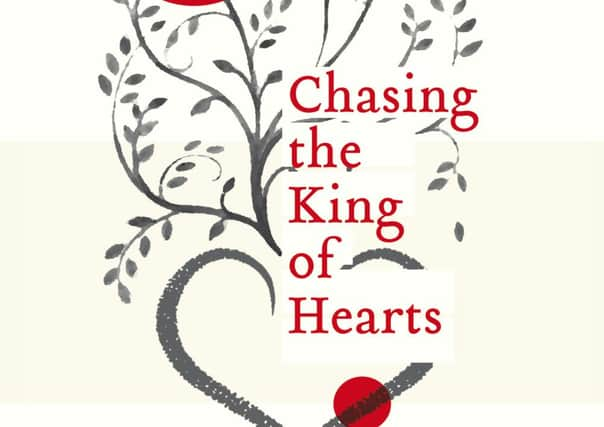Book review: Chasing the King of Hearts by Hanna Krall


The answer is simple; you move heaven, earth – and hell – to get him out.
Peirene Press, the independent publishing house whose own mission is to bring the best of European literature to the forefront of English-speaking minds, hearts and consciences, has unearthed a remarkable, heart-breaking jewel of Holocaust literature.
Advertisement
Hide AdAdvertisement
Hide AdChasing the King of Hearts, a love story, a personal history, a tale of hope and hopelessness, trust and betrayal, survival and death, is the work of 78-year-old Hanna Krall, a Polish Jewish author who survived the Second World War by hiding in a cupboard.
But this is not Hanna’s story, and neither is it just the story of her fictional heroine Izolda Regensberg and her handsome husband Shayek; it is a moving testament to the millions whose lives were wiped out or cruelly broken by one of the most devastating events in European history.
Powerful in its raw simplicity and deeply affecting in its emotional stoicism, Chasing the King of Hearts portrays the horrors of the Holocaust through the eyes of one young woman whose daily struggle to stay alive is driven not by cause, revenge or politics but by her need to save her husband.
In the Warsaw Ghetto in 1942, Izolda Regensberg is working as a nurse and learning much from the newspaper shrouds used to wrap bodies left out on the streets for burial.
Advertisement
Hide AdAdvertisement
Hide AdA Jew is anyone with three Jewish grandparents, armbands with the star must be worn only on the right sleeve, soup can be made by boiling leftover bread and the best place to hire a four-coffin hearse is a firm called Eternity.
Some Jews have ‘bad looks’ while others are lucky enough to have ‘good ones.’ Izolda had hoped that her husband Shayek’s blond hair and skin with a ‘golden tinge’ would somehow protect him but she was horribly wrong and when he is captured and sent to the Mauthausen concentration camp, she sets out to release him.
She escapes the ghetto, changes her name to Maria Pawlicka, dyes her hair ash blonde, learns the non-Jewish way to carry a handbag, develops a new ‘high-pitched, quarrelsome voice,’ turns to Catholicism and even learns to say the Rosary.
Through work in a forced labour camp, through kindness, cruelty, indifference, self-interest, defeatism and brutality, Izolda makes a bargain with God but her luck runs out when she recites the Hail Mary prayer ‘the Jewish way’ and is deported to Auschwitz. But even there, she trusts that her love for her husband will save them both…
Advertisement
Hide AdAdvertisement
Hide AdThe extraordinary resonance of Chasing the King of Hearts, translated here with subtlety and empathy by Philip Boehm, lies in the almost casual way in which Izolda reveals the horrors unfolding around her.
From the arrivals camp guard whose nod of the head or ‘careless’ hand gesture is the difference between life and death, to the boom sale of potassium cyanide in the ghetto and understanding the difference between death on the battlefront and the ‘slow expiring’ that is death in Auschwitz, Krall’s understated prose is chillingly poignant.
There can be no happy ending to Krall’s story… as Izolda learns, ‘surviving’ the Nazi persecutions brings with it a terrible legacy. ‘We’re still here,’ the mantra that gave strength and meaning to Izolda’s struggle, becomes a haunting succession of ‘what ifs.’
Thus Izolda’s burdens become the burdens of all Holocaust victims, her personal history is the history of millions and the evils of Jewish discrimination are also the evils of any form of discrimination.
An unforgettable and unparalleled addition to the classy stable of Peirene Press books.
(Peirene, paperback, £12)